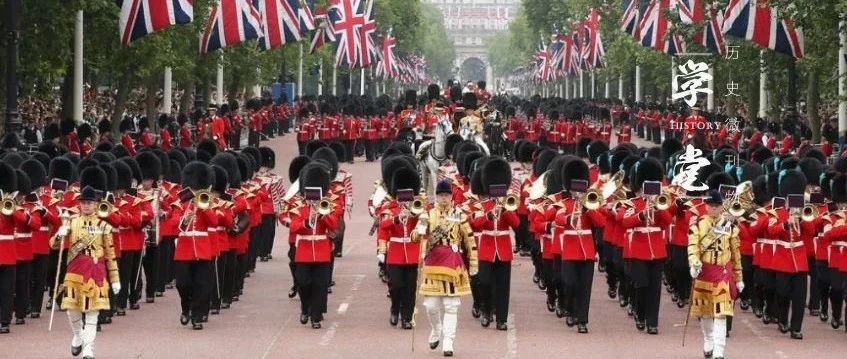An introduction to English history must be read! The Treasure of the Town Pavilion of Oxford University!

If you are also a lover of British history and want to understand the overall context of British history, you must not miss this book.
not long ago, the Queen of England celebrated her lowest birthday in recent years.
there was no magnificent military parade and no usual shots were fired, only a small ceremony was held at Windsor Castle.
last year's Queen's birthday celebration, the parade consisted of more than 1400 officers and soldiers, 200 horses, and more than 400 musicians, which is said to be one of the most magnificent military parades in the world.
many people envy and wonder why Britain still retains the royal family and why its citizens are willing to provide for their luxurious life.
this Oxford British History will tell you the answer.
from the Roman invasion in 54 BC to the economic recession in 2008, the magnificent British history of more than two thousand years has made people's blood boil.
is worthy of Oxford University experts spent 40 years creating a professional introductory reading for history lovers!
after reading this book, I found the answer to the question at the beginning!
but from Glorious Revolution, the establishment of constitutional monarchy eased the contradiction and made the royal family a symbol of the country continues to this day.
although they no longer have real power, they still play the role of stabilizing the hearts and minds of the people and stabilizing the political situation and can bring certain economic benefits.
as we all know, in the middle of the 18th century, after the first industrial revolution, mankind entered the steam age.
large-scale machine production has replaced manual production and greatly improved production efficiency, which is an important stroke in history.
but the author of this book says that the concept of "revolution" means nothing to the British.
the influence of industrialization is gradual and relative, and it does not immediately bring about earth-shaking changes in people's lives.
so until the 1820s, economists were still doubting whether technology could generally improve people's living standards.
it took another 30 years for people to realize that the industrial revolution made life better.
Selecting sequin wedding dress will bring out your high fashion sense and fashion conscience. We stock the best selection of your preferred taste.
Trade and commodity circulation have left 30 percent of the UK population living in cities and towns, and they all have food, clothing, and heating.
No other European country controls such a huge overseas market as Britain.
but what makes the UK stand out is the qualitative change in marketing, technology, and government intervention, not just the technological progress we usually think of.
Britain's "rotten" culture has a long history.
James I of the Stuart dynasty had a passionate homosexual relationship with his courtiers. The courtier took over power while James was ill. The formation of
The "corrupt country" tag is related to British society and the government's tolerant attitude towards homosexuality.
as early as the 20th century, the then British Prime Minister pursued hedonism and carried out a policy of tolerance, and the law was lenient to sexual crimes and homosexuality.
Britain's gentleman culture also strengthens the "corrupt country" label.
under the influence of gentlemanly culture, British men are very concerned about what they wear. They are slender, elegant, and generous, and speak with a rich and magnetic British accent. Even straight men will give people the illusion of "corruption".
after reading this book, I suddenly realized: there is still such a way to interpret British history!
then I can't help feeling that I know too little about British history before.
Professor Morgan's Oxford British History, starting from the great view of history, clearly outlines the context of the development of British history for readers.